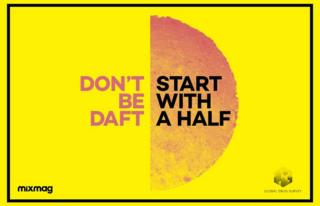Fabric closure: What next for the UK’s club scene? – BBC News

 Image copyright Thinkstock
Image copyright Thinkstock Fabric, one of Britain’s best-known nightclubs, has been shut after the deaths of two clubbers. But fans, DJs and venue owners have decried the decision, saying it will not solve the drug problem but will have a chilling effect on the clubbing scene.
“Our culture has been torn apart,” tweeted dance act Chase & Status, noting that almost all of London’s iconic dance venues have now closed their doors.
Trainspotting author Irvine Welsh said the decision marked “the beginning of the end of our cities as cultural centres”.
And a host of other artists and DJs, from Fatboy Slim and the Chemical Brothers to Radio 1’s Annie Mac and Nick Grimshaw, also expressed their dismay.
Singer Roisin Murphy told the BBC: “For London it is a sign of things going downhill, in terms of being a fun place. I think people have seen the same thing happen in New York.”
‘Inadequate’ drug policy
Islington Council revoked Fabric’s licence after the drug-related deaths of two 18-year-olds in June and August.
At a late-night meeting on Tuesday, the council’s licensing board heard that both men had consumed MDMA in the nightclub and purchased drugs in the venue.
During an undercover police operation, carried out between the two deaths, officers witnessed open drug use and drugs being offered for sale.
“Staff intervention and security was grossly inadequate,” the council said in their decision. “It was abundantly obvious that patrons in the club were on drugs and manifesting symptoms showing that they were.
“This included sweating, glazed red eyes and staring into space, and people asking for help.”
The decision has been criticised by drug charities and music industry bodies, however, who say Fabric had an excellent reputation for tackling drug-taking on its premises.
- Fans leave flowers in tribute – BBC Newsbeat
- “Let’s make clubs safer” – BBC Three
- UK nightclubs: An endangered species? – BBC Three
- The future of clubbing – BBC Newsbeat
 Image copyright Getty Images
Image copyright Getty Images “If we find a suspected drug dealer we take them to a well-lit, CCTV monitored room, we sit them down and we have them arrested,” the club’s co-founder, Cameron Leslie, told Tuesday’s hearing. “Then our team, at our expense, goes to court to seek a conviction.
“The notion that we provide a safe haven for drugs is frankly insulting to the considerable efforts we have put in over the years.”
Chase & Status took a stronger line. “It’s the early 90s garbage again – the law demonising clubs and raves with an archaic view on drugs and the youth.”
So what does the closure mean for the future of clubbing?
“This is a watershed moment for London and Britain,” says Alan Miller, chairman of the Night Time Industries Association (NTIA).
“On the basis of what they’ve done in Fabric, they can close every single bar, club and licensed premises in the UK.”
Alex Proud, owner of the Camden Proud nightclub, warns: “They’ll come for me next.
“Once the police have the ability to close a club that is well-run on those sorts of grounds, every club in London has to think it could be closed tomorrow.
“It’s a profoundly disturbing precedent to set.”
‘All-out war’
Before Fabric closed, things were already reaching a crisis point. Nearly half of the UK’s nightclubs have shuttered in the last 10 years, according to the Association of Licensed Multiple Retailers (ALMR) – dropping from 3,144 in 2005 to just 1,733 last year.
Duncan Dick, editor of dance bible Mixmag, says the scene could easily be driven underground.
“You’ll never stop people from dancing, so if they start declaring all-out war on clubs across London, you’re going to see a big increase in people going to much less safe, much less well-regulated places.”
And that’s a problem, says Katy MacLeod, director of Chill Welfare, a social enterprise dedicated to keeping clubbers and festival-goers safe.
“We’re likely to see a shift back to things like warehouse parties and house parties, where there’s no drug prevention or enforcement policy,” she explains.
“If people are going to have drug-related incidents, it’s probably safer to have them in nightclubs, where they have much more likelihood of prompt medical treatment.
“The idea that we’re pushing it out to much more unsafe settings means we’re much more likely to see fatalities.”
 Image copyright Getty Images
Image copyright Getty Images The solution, she says, could take the form of on-site drug testing. Already popular at European music festivals, it has been trialled in the UK at Manchester’s Warehouse Project and the Secret Garden Party Festival.
The service, operated in agreement with police, allows users to hand over drugs for tests to establish their content before they take them.
“If they find there’s something harmful in their drugs, they’re much more likely to surrender them,” says MacLeod. “At the Secret Garden Festival about a quarter of people put them in an amnesty bin as a result.”
MacLeod says initiatives like this often stumble because, in order to implement them, a club has to acknowledge people are taking drugs on its premises – which would immediately put them in breach of their licensing conditions.
“That really needs to change,” she says. “It isn’t any one club that has a drug problem. It’s everywhere in the community. There will be a percentage of people that are using drugs in any nightlife setting.”
 Image copyright Mixmag / Global Drug Survey
Image copyright Mixmag / Global Drug Survey Indeed, the two deaths at Fabric did not occur in isolation. According to the Office for National Statistics, the number of deaths from ecstasy rose from eight in 2010 to 50 in 2014.
It coincides with a new, more powerful strain of the drug – and many users are unaware of the effects. One of the teenagers who died at Fabric entered the club with three MDMA pills and later bought another because he “felt his were not working”, according to police.
With that in mind, Mixmag has started its own education programme – Don’t Be Daft, Start With A Half – promoting safer ecstasy use.
“It encourages people who are going to take ecstasy to take a small amount first and see the effects before they take a full dose,” says Dick.
“‘Don’t Be Daft, Start With A Half’ might sound a bit superficial, but we’re operating in such a vacuum that if we can just get one memorable phrase into people’s heads, then hopefully we can save lives.”
‘Breeding ground for music’
Meanwhile, the future of Fabric hangs in the balance.
“I think the whole industry’s going to rally round to do something about it,” says the NTIA’s Alan Miller. “It’s not going to finish like this. There’s all sorts of mechanisms that can be used to challenge this, whether it’s the High Court or Parliament.”
He has the support of London’s Mayor, Sadiq Khan, and Islington South MP Emily Thornberry, who wrote to Islington’s licensing committee asking them to keep the club open.
“Whilst it may not be to everyone’s tastes, Fabric has huge cultural significance to an entire generation – a generation too often ignored and overlooked by politicians and policy makers,” she wrote on Facebook.
“As a parent, my heart goes out to the family and friends of anyone who has lost loved ones at such a young age, with lives ended before they have even begun. But we must guard against the assumption that dangerous drug use would cease simply if we were to close a nightclub like Fabric.”
 Image copyright Fabric
Image copyright Fabric Duncan Dick, who saw his favourite nightclub (Glasgow’s Arches) close down in similar circumstances, is less optimistic.
“The Arches was a huge cultural hub for the city and the police shut it down,” he says. “And what do you know? The next thing, a luxury hotel gets built a couple of minutes down the road.
“I don’t want to impugn the motives of Islington Council but if Fabric closes down, it would be interesting to see what replaces it – and whether it’s another multi-million pound property development.”
Fabric was “an institution” in UK dance culture and a launchpad for new talent, according to Joe Lenzie, one half of chart-topping dance duo Sigma.
“It was definitely a breeding ground for young producers, like ourselves, and loads of careers have come from long nights in that club,” he tells BBC Newsbeat.
“The council seem to be trading our roots and culture for expensive and high-end flats.”

Follow us on Twitter @BBCNewsEnts, on Instagram at bbcnewsents, or if you have a story suggestion email entertainment.news@bbc.co.uk.

Read more: http://www.bbc.co.uk/news/entertainment-arts-37297353